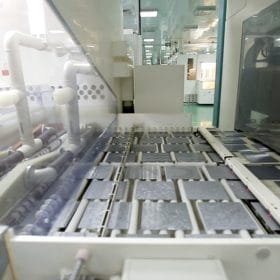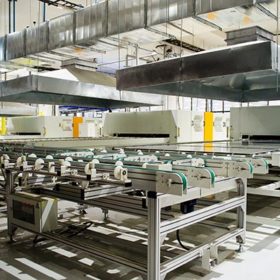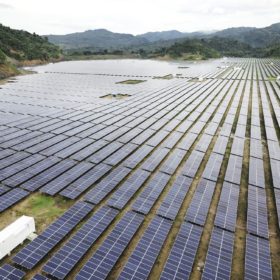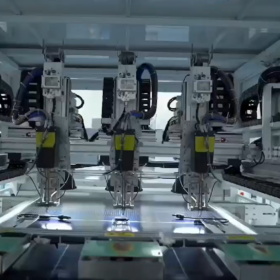India installed 11.2 GW of solar in first nine months of 2022
The nation installed 9.3 GW of utility-scale solar, 1.3 GW of rooftop arrays, and 0.6 GW off-grid PV projects from January to September this year.
US Commerce Department throws out anti-dumping petitions
The dismissal is a win for the Solar Energy Industries Association, which vigorously opposed the request by American Solar Manufacturers Against Chinese Circumvention (A-SMACC) for anti-dumping and anti-circumvention (AD-CVD) tariffs
Module price increases to moderate solar project returns
Solar module prices have increased by about 15-20% over the last 4-5 months to around 22-23 cents/watt as of date. As PV modules comprise about 50-55% of the overall project cost, such an increase in the module price level, if sustained, may moderate the debt service coverage metrics for developers by about 12-14 basis points.
Production-linked solar incentive scheme to support just 8-13% of 240 GW panel demand till FY30
India has set a ‘280 GW by 2030’ solar target, out of which 240 GW is yet to be implemented. India Ratings estimates the PLI scheme shall provide incentives to the beneficiary facilities for an aggregate sales of 20-30 GW over a five-year period, which is just 8%-13% of the planned 240 GW requirement.
Industry reacts to production-linked solar incentive scheme
Solar manufacturers have welcomed the bidding criteria which apply to the incentives offered for setting up gigawatt scale, high-efficiency PV production lines but would like a bigger budget, to finance significant capacity build-up.
Solar tariff rise due to customs duty would cost to Discoms INR9 billion annually
India’s declining solar tariff trend will see a reversal as the basic customs duty comes into effect. According to India Ratings, tariffs will likely touch INR 2.43 when using imported solar modules with 40% duty applicable, putting an additional cost burden on Discoms.
India needs to adopt a balanced approach for solar manufacturing
A new report says the imposition of safeguard duties and basic custom duties is only a partial solution to help the domestically produced solar modules remain competitive with imported panels. The government needs to adopt a long-term strategy towards PV manufacturing that supports backward integration and sustained innovation.
Cabinet approves INR22600-crore budget for solar module and advanced battery manufacture
An ambitious, INR146,000 crore, five-year expansion of a previous domestic industry spending program includes money to attract investment into the sustainable energy and transport technologies.
Stable outlook for operating solar projects, new PV at risk
Solar projects under construction face uncertainty as factors like labour shortage and proposed duties on module imports could lead to significant cost overruns for the developers.
3 GW Indian solar projects at risk due to Coronavirus, says CRISIL
Delay in sourcing of PV modules from China can cause project cost and time overruns, inviting penalties for missing the commissioning date.













